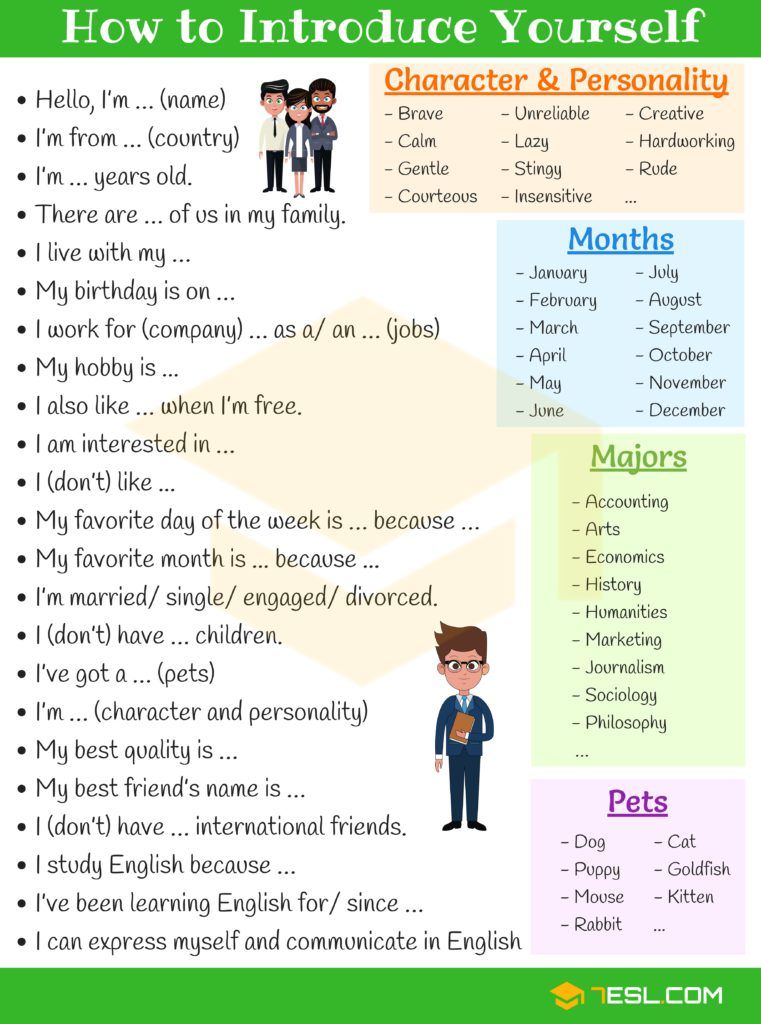Learning to like yourself
Learn How to Self-love | Psychological Health Care
Self-love is a term that is often thrown around even in normal conversation. You have likely heard:
“You need to love yourself more.”
“Why don’t you love yourself?”
“You can’t love someone else if you don’t love yourself first.”
Sayings like these are exhausted when it comes to giving people suggestions on ways to live a more fulfilling life, ways to have more confidence, ways to be more successful, or ways to feel something other than what they are feeling.
But when we talk about self-love in instances such as this, do we actually understand what we are talking about?
Let’s dive a little deeper into this sacred and fragile topic of how to self-love.
What is Self-love?
Self-love is not simply a state of feeling good; it is an action. Self-love is a choice. It is a way of relating to yourself that involves being understanding for your mistakes, understanding in your losses, and being able to effectively communicate with yourself about life without harshly judging or punishing yourself.
Research has shown that learning how to self-love is associated with:
- Less anxiety and depression
- Better recovery from stress
- An overall more optimistic outlook on life
- Better adherence to healthy behaviour changes
In short, self-love is how you view yourself and how you treat yourself.
Why is Self-Love Important?
Learning how to self-love is important to living happier and healthier in every aspect of your life. It influences who you pick to be your mate for life, the image you project at work, how you accomplish your work, the way you raise your children, the way you interact with those around you and the way you cope with the problems in your life.
Why You Might Be Lacking Self-Love
Low self-esteem or lack of self-love is something that could be developed in childhood and carry through to adulthood. Or, it is something that could present itself solely in adulthood.
Some negative behaviours that can be attributed to a lack of self-love, according to the National Association for Self-Esteem:
- Earlier sexual activity
- Alcohol and drug abuse
- Self-harm
- Eating disorders
You might be lacking self-love for a variety of reasons or habits, as noted above. It can be because of the actions of those around you, because of a traumatic event in your life, because you lacked a good example of self-love, or simply because of a way of thinking that you innately practice.
It can be because of the actions of those around you, because of a traumatic event in your life, because you lacked a good example of self-love, or simply because of a way of thinking that you innately practice.
But, one important thing to remember is that low self-esteem due to a lack of self-love is not an accurate reflection of reality, rather a reflection of your perception on reality.
Tips to Learn How to Self-Love
While self-love is not necessarily innate, it can be taught. Here are some helpful tips on how to self-love today:
Recognise How You Are Feeling
You’ve probably heard the cliché saying that “the first step to overcoming a problem is admitting that you have one.” Well, one of the first steps to learning how to self-love is kind of similar – it is becoming aware of yourself.
We all feel a variety of emotions throughout our life – sadness, anger, frustration, loneliness, happiness, and more.
When something is off, it is important to take a moment to recognise how you are feeling at that moment and why.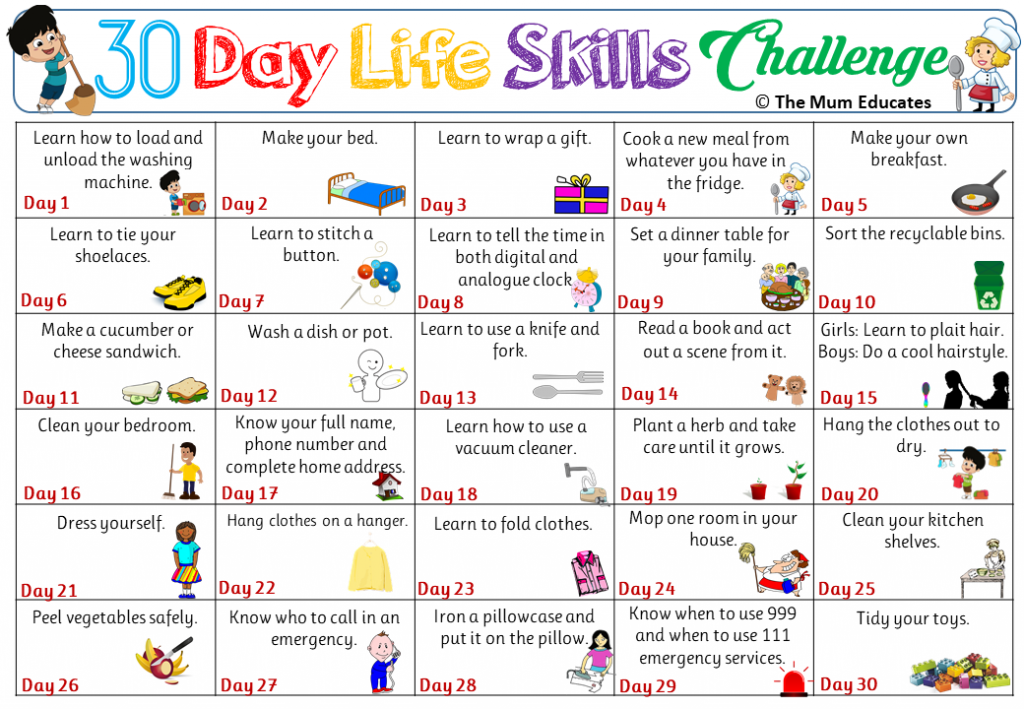
Why are you sad? Why are you angry? Why are you happy?
In self-love, you must be mindful so that you can begin to shift any negative state that is involved in those feelings.
Accept How You Are Feeling
While there is nothing wrong with feeling any of the emotions we mentioned or others, it is important that once you recognise your emotions you can accept them.
Whether you want to feel it or not, the feeling is there. Take a moment to pause and sit with that feeling.
Now, scan your body to see where you feel it.
Think About Your Feelings from an Outsider’s Perspective
How would you feel if you saw a loved one experiencing the feeling you are experiencing at that moment? Then, think about how you might encourage them to proceed.
What is funny about life and our brains is that we treat ourselves entirely different than we treat others. While we might try to enforce a positive behaviour on our friend or family member experiencing a negative emotion, we would beat ourselves up for feeling this way.
View this situation with a kind eye and be kind to yourself. Love yourself in that moment and all moments.
Forgive Yourself
This self-love tip really has two points to it:
First, decide what it will take to forgive yourself for whatever the situation is.
Second, make a conscious decision to forgive yourself.
We can be so hard on ourselves sometimes, but it is important to give yourself a break. You can be your own worst enemy at times.
When you believe you have made a mistake, decide what action you can take to make it right in your own eyes. Then, use self-talk to encourage yourself to take that step toward forgiveness.
Say No to Others
Sometimes practising self-love isn’t just about speaking kindly to ourselves when we are feeling certain emotions. It can also be about taking care of ourselves when others are around.
Set boundaries. Make time for yourself. It is okay to tell people “no” if you think that you need to. Love yourself enough to make the right decision for you, not for anyone else.
Love yourself enough to make the right decision for you, not for anyone else.
Self-love is a continuous action, a continuous process, a continuous choice. You should constantly be investing in yourself by working on doing things that promote self-love.
Accept Help
One way to continuously ensure you are focusing on how to self-love and putting tips like these into practice is to consider seeing a psychologist regularly for support.
At Psychological Health Care, our trained clinical psychologists are experienced in things such as self-love, and as an unbiased third-party, we can more effectively assist you in your learning. Book an appointment and start your journey to learning how to self-love.
Self-love is vital to your overall well-being. Invest in your self – you matter.
How to Like Yourself: 12 Tips And Exercises
Experts indicate that it’s not uncommon for people to dislike themselves. Sometimes people can’t like themselves because of negative thought patterns and feelings. They may feel a sense of shame about who they are, making it extremely challenging to believe anything good about themselves.
They may feel a sense of shame about who they are, making it extremely challenging to believe anything good about themselves.
Sometimes, people don’t like themselves because they didn’t come from a supportive or nurturing household as a child. They may have low self-esteem and lack compassion for themselves as a result. This lack of self-confidence can lead to people-pleasing for validation and porous boundaries.
You might not feel love for yourself right now, but you can take steps to get there. Taking steps to find a more neutral place where you don’t dislike yourself but don’t quite love yourself is a good starting point.
Continuing your journey will eventually lead to loving who you are. Experts indicate that some of these steps include:
1. Take care of yourself
Research indicates that regular exercise and a healthy diet can improve overall health and well-being. Consider setting a goal of 12-3 hours of moderate physical activity every week. This can look like going on walks, practicing yoga, joining a workout class, going for a bike ride, etc.
While exercising and eating healthy is essential for your well-being, you also must feel good about who you are on the outside. This could mean taking care of your appearance and dressing in a way that makes you feel comfortable and confident.
2. Identify Your Strengths
You might focus on your weaknesses and shortcomings when you don’t like yourself. Shifting your thought process and thinking about your strengths can make you feel better and release some of the negativity.
If this doesn’t come naturally to you, you might want to try journaling about the things you like about yourself and what you are good at so you have something positive to look back on when you’re feeling low. You can also call up a friend and ask them what they think your strengths are.
3. Express gratitude for who you are
Practicing gratitude by embracing your gifts, abilities, and life itself can help you learn to appreciate yourself. It allows you to focus on the positive aspects of your life rather than thinking of things you wish were different.
You can think of all the small ways you take care of yourself each day that you may take for granted. Thank yourself for moving your body today, feeding yourself, going to work, watering your plants, making your bed, etc.
You do more than you realize, and it’s worth taking a second to thank yourself for everything you do. You can also take a moment to thank the environment and the people who give meaning to your life.
4. Avoid comparing yourself to others
Comparing yourself to others often leads to not liking yourself. Comparing yourself can diminish your self-confidence and cause you to question your worth. You’ll likely notice an improvement in how you feel about yourself if you work to stop the comparisons.
When you do notice you’re comparing yourself, try to remind yourself that other people’s wins are not your losses, and there’s room for everyone to thrive in their lives.
5. Limit Social Media Exposure
If you compare yourself to people on social media, you can remember that you’re comparing yourself to their highlight reel. Many photos get edited to look perfect, and comparing yourself is unfair. Consider limiting your social media exposure if it becomes an issue in your life.
Many photos get edited to look perfect, and comparing yourself is unfair. Consider limiting your social media exposure if it becomes an issue in your life.
Even taking one day out of the week to distance yourself from social media and focus on the real world can help ground you and remind you that what goes on on social media ultimately doesn’t matter.
6. Focus on positive thinking
A negative thought process can lead to not liking yourself. You can switch your thought process and focus on positive thinking to help you find neutral territory. Eventually, positive thinking can lead to loving yourself, but take it one step at a time.
You can try replacing negative thoughts with positive ones, promoting an optimistic outlook on life. It can increase self-confidence and help you feel better about who you are.
Studies show that rumination, or analyzing and focusing on trauma or a past event, can lead to self-critical thoughts. Switching your mindset and focusing on positive thinking in these instances is essential, or it could contribute to depression.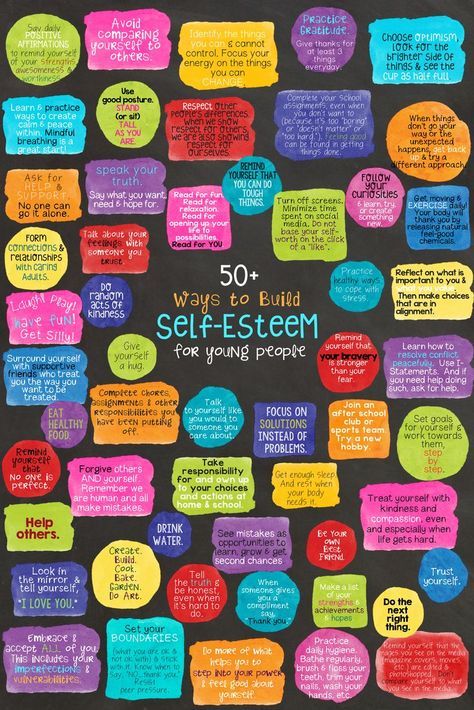
This change in thinking may feel forced at first, but that’s okay. Stick with focusing on the positive, and positive thinking will eventually begin happening naturally.
7. Be kind to others
Being kind to others can help you like yourself better. Acts of kindness can improve your self-confidence because you’ll feel like a kind and generous person. Without acts of kindness toward others, your self-image might plummet, leading to not liking yourself much.
8. Prepare for upcoming events
Taking the time to prepare for upcoming events can help you like yourself. Studying for tests and setting aside the time you need to prepare can help you trust yourself. You’re more likely to feel good about yourself if you know that you did what was necessary to achieve your goals.
Tests aren’t the only thing you can prepare for to feel better about yourself. You can also plan for upcoming meetings, dinner parties, or events. Consider taking the time to think about any experiences coming up in your life so you can do what you can to prepare.
9. Surround yourself with positive people
Spending time with critical people who tear you down and make you feel bad about yourself isn’t beneficial. It can interfere with how you view yourself. Letting go of anyone who makes you feel unworthy can help you learn to like yourself.
Consider taking the time to develop a friend group that supports you and your dreams. They might offer constructive criticism because they want to see you do well. You can focus on the people who want what’s best for you and spend less time with negative people.
10. Set goals that are small and achievable
Achieving goals will make you feel better about yourself, helping you learn to like who you are. It can also help set you up for future success as you know you can achieve your goals.
You can set small goals that are easily achievable while still challenging yourself. It can help you recognize your strengths and love who you are.
Each time you reach your goal, increase what you wish to achieve next.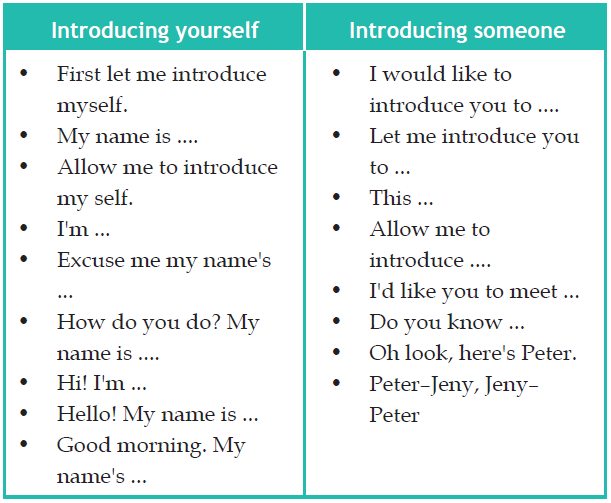 Progressing in increments is powerful and helps keep you motivated while teaching you to like yourself.
Progressing in increments is powerful and helps keep you motivated while teaching you to like yourself.
11. Practice self-compassion
Practicing self-compassion can prove beneficial to your well-being and thought process. You can experience more positivity in life, contributing to liking yourself more. Experts explain that self-compassion involves being kind to yourself, practicing mindfulness, and focusing on humanity.
12. Try therapy
Therapy can help you recognize negative thinking habits that are inaccurate or harmful. It can also help you develop coping methods to alleviate stress and focus on the positive parts of your life. A therapist can help you recognize specific issues in your life that contribute to your disliking yourself.
It’s common for people to dislike themselves, but you can work toward a more positive lifestyle. You likely won’t quickly go from disliking yourself to loving who you are, but you can find neutral territory. Once you find neutral ground, you can keep building on it to learn to like yourself.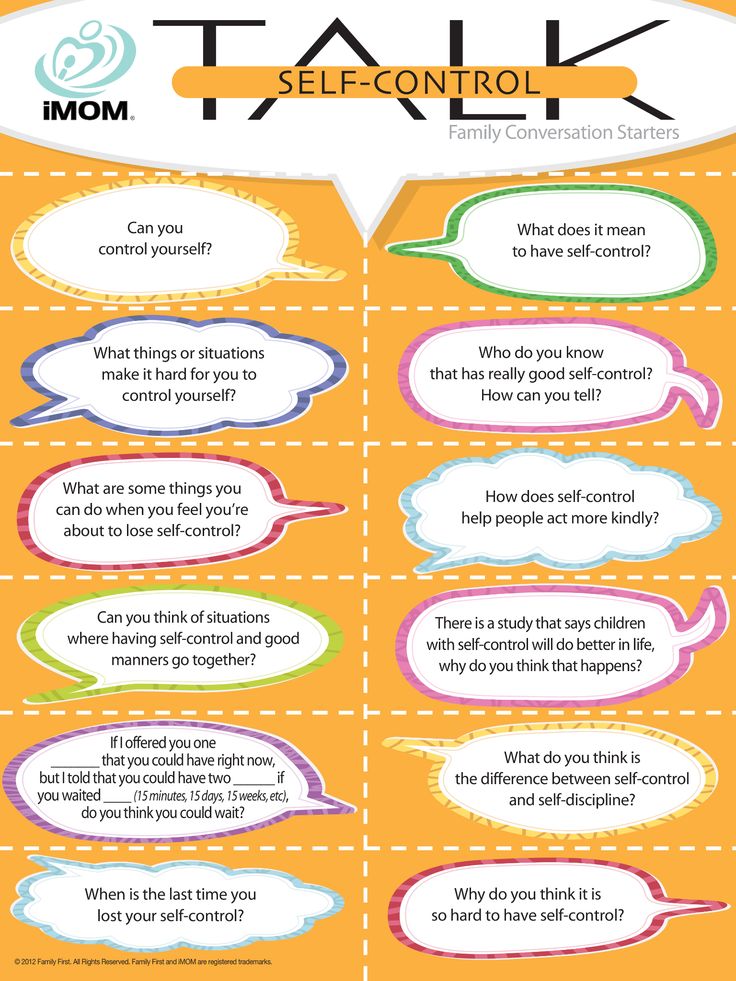
These tips can help you lead a better lifestyle. You deserve self-love and can achieve it by focusing on self-compassion and positive thinking.
You can start with one or two tips before moving on to other ideas. Or, you can implement it all at once. Either way, you can notice a positive change in your life with these helpful steps.
How to learn to love yourself: working tips
How to learn to love yourself: GettyimagesPeople who truly love themselves - who are they? Narcissistic egoists who do not have friends, or happy and self-sufficient individuals? Psychologists Mikhail Labkovsky and Veronika Alexandrova will help you understand this issue and tell you how to develop healthy self-love.
1. Realize your self-sufficiency and accept yourself
Many parents teach their children to love themselves for something, they say that it is important to constantly prove something, to be good. The famous psychologist Mikhail Labkovsky argues that you just need to love yourself.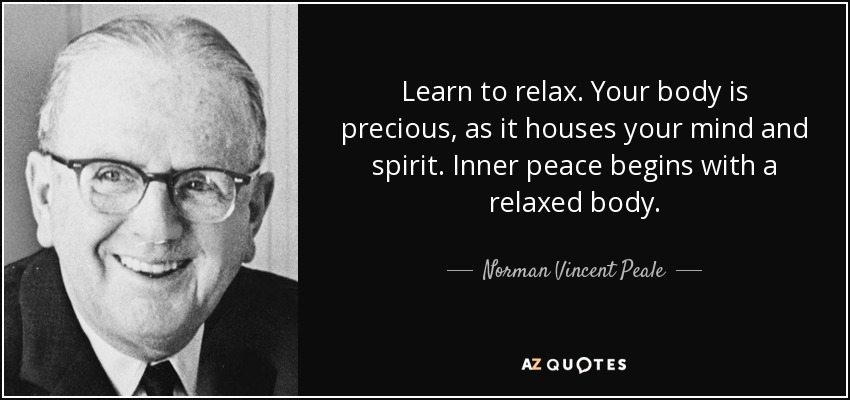 Repeat every day: "I like myself." Looking in the mirror, repeat: “I like everything. Everything I see suits me.” Remember that you are not better or worse than anyone else, you are you. nine0005
Repeat every day: "I like myself." Looking in the mirror, repeat: “I like everything. Everything I see suits me.” Remember that you are not better or worse than anyone else, you are you. nine0005
Start the path of self-love by recognizing and accepting your shortcomings and forgiveness for past mistakes. This does not mean that you do not need to strive for development, just stop scolding and condemning yourself.
2. Track down negative beliefs and change them
Self-dislike is often rooted in persistent negative beliefs. So, a person can think that he is a crooked clumsy, and cite thousands of evidence to support this. However, this property is not innate, but acquired, and, therefore, it can be changed. nine0005
Psychologist Veronika Alexandrova explains that the human psyche is designed to pay attention to what confirms deep-seated beliefs and at the same time ignore any refuting cases. To love yourself:
- Observe yourself and identify your own beliefs about yourself.
 For example, when you forget something, you think that you are stupid and unreliable.
For example, when you forget something, you think that you are stupid and unreliable. - Every time you catch yourself thinking this, look for another explanation for the situation. Do not take all the blame and responsibility only on yourself. nine0020
Pay attention to your successes and praise yourself for them. This will help you develop a positive attitude towards yourself.
3. Do not compare yourself with others
If you constantly compare yourself with others, then there is a feeling of inferiority. A person gets into an endless wheel of suffering and chasing someone and his success. Each of us can only be ourselves and live our lives.
The only person worth comparing yourself to is yourself. At the same time, it is important to compare not only the results achieved, but also the new knowledge and understanding gained. Ask yourself these questions daily:0005
- What have I become wiser than yesterday, what have I learned new things?
- What lessons have I learned today?
Such a comparison motivates, helps to understand what needs to be worked on and where to strive for.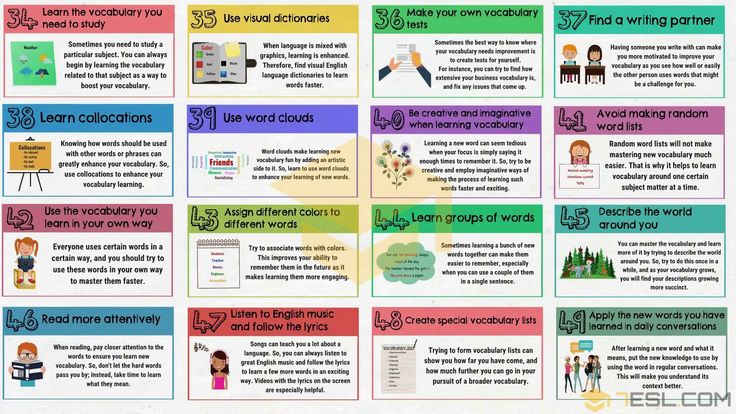
4. Take care of yourself
Self-love: GettyimagesPsychologist Sara-Len Mutivasequa recommends paying attention to this aspect. First of all, it is connected with the body, but not only with it. Self-care is in everything we do for health:
- Eat a balanced diet and drink enough water.
- Get enough sleep and rest.
- Give up bad habits.
- Go in for sports.
In addition, it is important to watch interesting films and listen to your favorite music, engage in hobbies, communicate with people who like you and treat you well.
5. Stand up for personal boundaries
Many children are taught to be obedient, to give up desires and to endure what they don't like to please other people. So a person gets used to the fact that for love you need to do not what you want, but what is expected of him. nine0005
Psychologist Marina Travkova advises you to determine what is acceptable and unacceptable for you personally in relationships with relatives, loved ones, friends, colleagues. Don't tolerate behavior you don't like. Be polite and correct about it right away.
Don't tolerate behavior you don't like. Be polite and correct about it right away.
By setting personal boundaries, people will understand how to behave with you, and communication will become more comfortable. In addition, it will help to understand people.
6. Act according to your desires
Stop looking at the opinions of others. Often people do not fully express themselves, “hide” their personality, because they are afraid to offend other people or hear unflattering opinions about themselves. For example, they are embarrassed to sing or dance in public for fear of arousing the disapproval of others or becoming the object of their sarcasm. nine0005
Get rid of this fear and learn to say and do what you want. Start small: choose your own clothes and dishes, express your wishes about joint leisure. The more you trust yourself and act on your desires, the more self-love will unfold.
7. Be in charge of your life
Whatever happens, ask yourself, "How did I create this situation?" and write down the answers. Try to find as many answers as possible. This will help you stop blaming others for what you have and the life you live, stop complaining about others and whining. nine0005
Try to find as many answers as possible. This will help you stop blaming others for what you have and the life you live, stop complaining about others and whining. nine0005
With acceptance of responsibility comes the realization that your life is in your hands and only you can change it. Make a list of your strengths and, based on it, choose a life path.
8. Give up judgment and envy
The path of self-love: GettyimagesJudgment of others, envy, constant grumbling and dissatisfaction with life take a lot of energy and strength. This negativity comes from within, that is, a person keeps it in himself. The more you condemn other people, the more you drive yourself into the framework, strive to be like everyone else, not to stand out from the crowd. nine0005
Let in life, instead of condemnation and grumbling, contemplation and a sober look at people and situations. Do not judge or envy those who have achieved something. Remember that a self-sufficient person who loves himself will never treat another worse than himself. Do useful things, learn to admire people.
Do useful things, learn to admire people.
9. Do not try to change others
It is easier to love and accept yourself if you treat others the same way. Don't try to change people, especially if they don't ask for it. Think about the fact that the people around us are our reflection. As we see them, we are ourselves. Therefore important:
- Accept your own and others' emotions.
- Be sincere.
- Say more kind words and compliments.
10. Love yourself like it's your job
Self-love is not a luxury or a genetic gift that confident people are born with. Love can be called both a journey and a destination.
Set aside time each day to analyze your feelings and desires. Keep a diary for this. Pay attention to the emotions that arise throughout the day. Take breaks from work and find time for activities that bring pleasure. Speak words of encouragement to yourself, be your own best friend. nine0005
Self-love develops gradually, as a person learns to decide what will remain in his life and what will leave it, what to say "yes" or "no".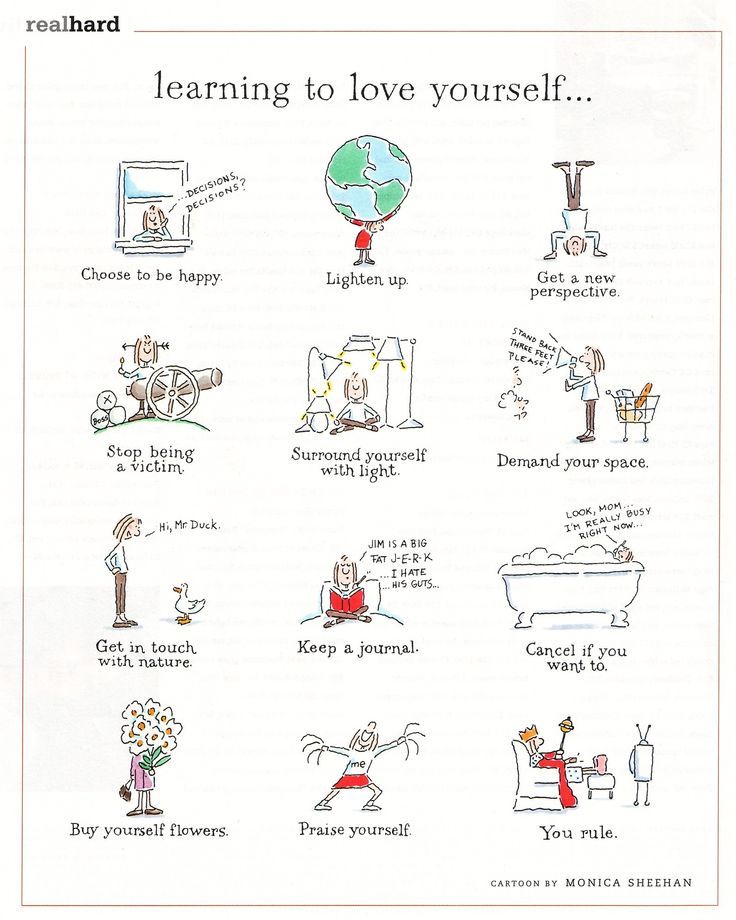 Take these questions seriously, give them time. Love yourself because the quality of your life depends on it.
Take these questions seriously, give them time. Love yourself because the quality of your life depends on it.
Original article: https://www.nur.kz/family/self-realization/1611990-kak-nauchitsya-lyubit-sebya-byt-uvere/
How to learn to love yourself? 15 steps to caring and acceptance
Olesya Akhmedzhanova
Every day tests and tests us for self-love: when we look in the mirror, communicate with a partner, meet friends, go to work. Every moment of our lives, we can feel the support within ourselves or scold our poor self. Together with the book "You Are the Guru" we tell you how to stop hating yourself and learn to accept.
Where is our love?
If you think about it, you can see how many of us take care of ourselves for years: exercise, diet, massage, spiritual practices and various forms of meditation. nine0005
nine0005
But when life really begins to test us, we never find true self-love to lean on.
This is what the Buddhist nun Pema Chodron says about this: “... all these years, it seems, have not added anything to their inner strength and kindness to themselves that would help them cope with what is happening ... When we allow ourselves unconditional acceptance of ourselves, it is then we really take care of ourselves in a way that pays off."
You are the guru
Source
This approach forces us to look deeper into our own soul to find answers. It's time to stop looking for "signs from above" that we are loved and start looking for signs that we love ourselves. Here are some ways to do it right now.
Love what you can already now
Bit of a mouthful, but surprisingly effective advice - start small. Love yourself just the way you are, now. Some days you will have to be content with loving the color of your eyes or tidying up your desk.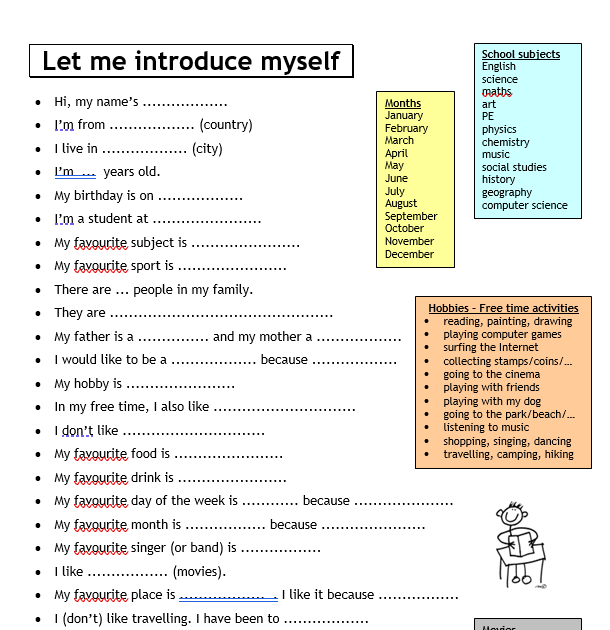 Wonderful. Choose at least something - just to divert your mind from hatred. There will be days when you will be shocked by the realization that you are an incredible, whole person. Believe me, gradually this feeling will become your protection and meaning in difficult times. nine0005
Wonderful. Choose at least something - just to divert your mind from hatred. There will be days when you will be shocked by the realization that you are an incredible, whole person. Believe me, gradually this feeling will become your protection and meaning in difficult times. nine0005
Remember good manners when talking to yourself
Source
Oh, those words that we use so often about ourselves. They are often unnecessarily cruel and harsh. Would you treat someone else this way? For example, would you talk to a child like that? Remember: love is patient, love is kind. Love says, “Oh, poor thing. No wonder you feel this way. It wasn't easy." That's what your best friend would say after you poured out your soul to her. You don't need a motivational speech or meditation to take your mind off things. All you need is a little empathy for yourself. nine0005
Seek love for yourself in others
If you cannot find compassion for yourself, find it in your friends and those you admire.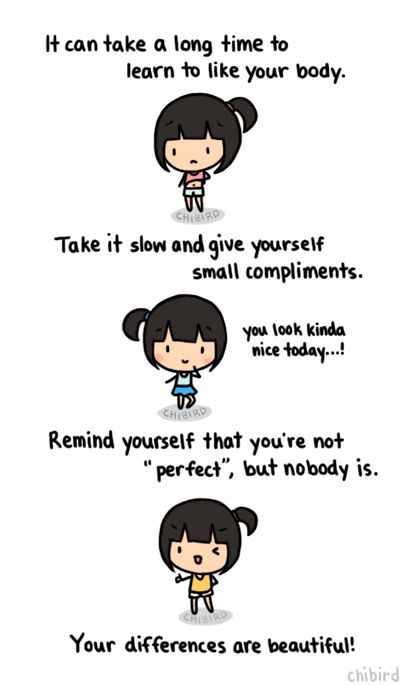 This is the beauty of the fact that we all go through the same thing together. We can share the ability to love with each other. Your close friend can tell you something that will inspire and support: “You are incredible, resourceful, kind and very attractive…”
This is the beauty of the fact that we all go through the same thing together. We can share the ability to love with each other. Your close friend can tell you something that will inspire and support: “You are incredible, resourceful, kind and very attractive…”
Connect with those who love you
9010
This is not arrogance or snobbery in the name of self-help. This is the minimum condition for maintaining a healthy environment. You develop most actively when you feel kindness, receive feedback and you have someone to laugh with. You don't view relationships as a spiritual training camp (even if they are). Let only love seekers like you be in your close circle of friends (by the way, one person is enough for a close circle).
Prioritize pleasure
After years of self-abuse, doing something for pleasure is quite a feat. Pleasure heals. Pleasure makes it easy to cope with all the (seemingly) insurmountable difficulties of ordinary life. Pleasure gives you strength, and you know it.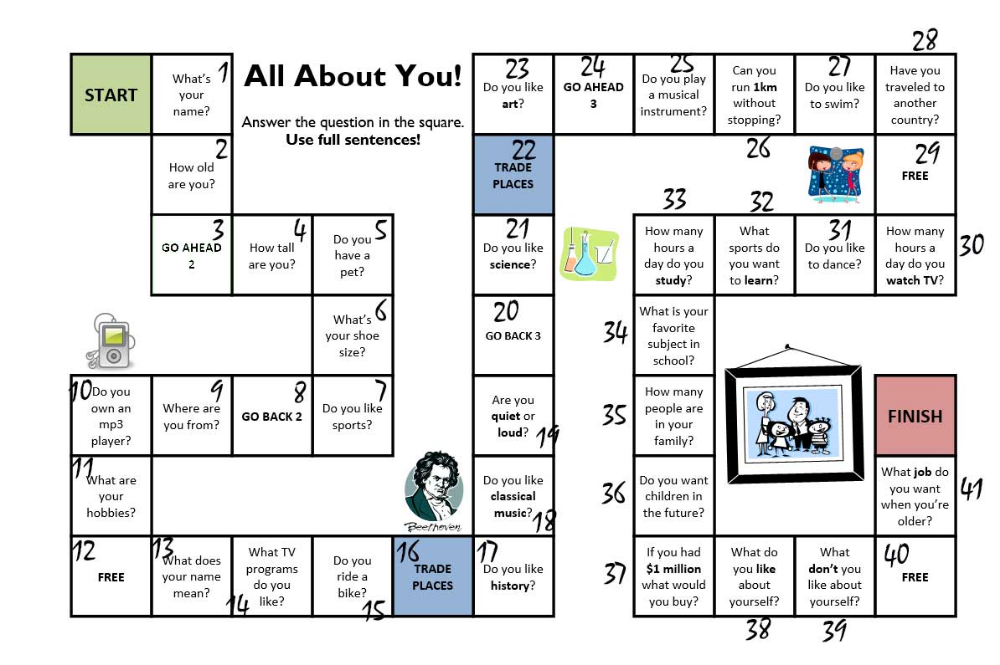
Reward yourself for every effort
Source
Reward yourself for more than just achieving your goals. And don't punish failure. Sometimes it's important to just be, because love is an endless process, not a path to the finish line. nine0005
No need to endure - you need to accept
You can consider that tolerance for your weaknesses is already an achievement. But tolerance is not the same as acceptance. Tolerance forces you to be on guard all the time: in fact, you only cope with the level of dissatisfaction with yourself. Instead, you accept that from now on, no matter what happens, you work only with the following: strengths and weaknesses. This decision allows you to create a close connection with your inner self that nothing can destroy. nine0005
Make friends with your loneliness
The ancient philosopher Plotinus claimed that on the path to enlightenment you go through stages of loneliness from "lonely" to "Exceptionally Lonely". The latter is what a person feels who has made himself the center of his universe. This is not an easy task. But the flip side of this sense of isolation is that it makes us more responsible and able to connect with the world. We care about our own loneliness and about others. And we are more aware of what we are giving to this world. nine0005
The latter is what a person feels who has made himself the center of his universe. This is not an easy task. But the flip side of this sense of isolation is that it makes us more responsible and able to connect with the world. We care about our own loneliness and about others. And we are more aware of what we are giving to this world. nine0005
Set personal boundaries
Source
It's simple: say "yes" when you mean "yes" and "no" when you mean "no". You do love yourself.
Say what you mean
Don Miguel Ruiz puts it better: “You can measure the perfection of your promises by the level of your self-love. How much you love yourself and how you feel is in direct proportion to how strong your word is.” You value your time, you value your word. You love yourself enough to know that every commitment you make - from the time you promise to appear somewhere to the vows for life - is sacred, because you are also sacred. nine0005
Take risks
Love expands the personality so that you are ready to do bold things. You see what you are really capable of. You not only trust yourself more, but you are sure that life will insure you when you dare to grow.
You see what you are really capable of. You not only trust yourself more, but you are sure that life will insure you when you dare to grow.
Apologize
Source
Loving yourself does not mean that you are always right. If you are close to yourself, you see where and when you did something wrong and hurt other people's feelings. You know that your integrity will not be broken when you admit your shortcomings. You have a foundation of self-compassion and awareness that you stand on so confidently that you can say, “I'm sorry. I know that I can fix everything, and I will." nine0005
Don't give up
Don't give up doesn't mean passively waiting. This is the kind of endurance that comes from self-respect. Self-love gives you the strength to say “no thanks” and to walk away and be comfortable with the status quo. Or you are able to admit that the situation annoys you - and while this is normal. All your standards are determined by self-love.
Love yourself like it's your job
Unconditional self love
Loving yourself is not a luxury or a genetic gift that confident people are born with.